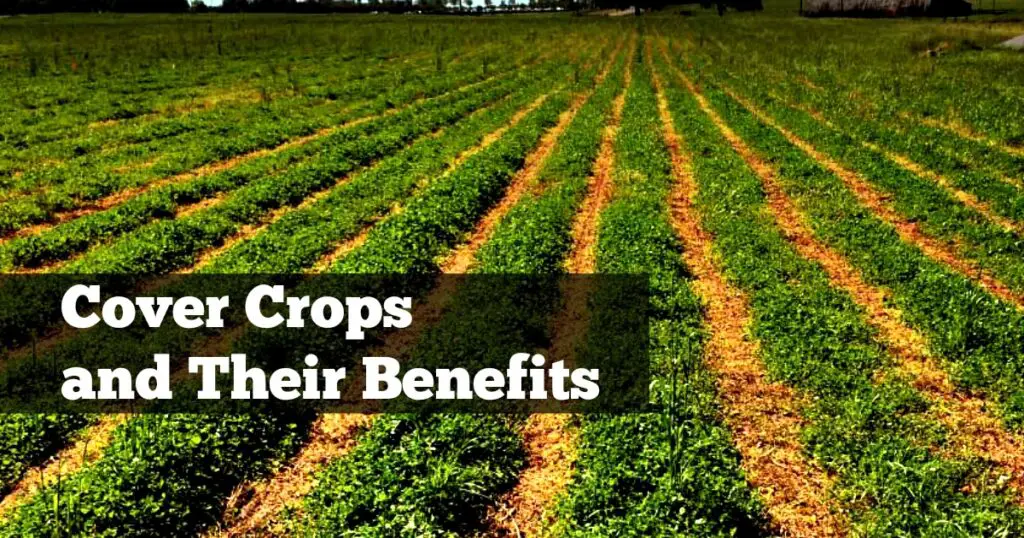What Are The Benefits Of Using Cover Crops In The Garden?
So, you wanna know about cover crops, huh? Well, buckle up, pal, 'cuz I'm about to give you the lowdown on these babies. First of all, they're not just some newfangled farming trend - people have been plantin' cover crops for centuries. Why? Cuz they WORK, that's why. And I ain't just talkin' about "oh, they're good for the soil" - no sir, cover crops are like the Swiss Army Knife of agriculture. They can do pretty much anything you need 'em to do. Let's dive into the details, shall we?

What are cover crops, anyway?
Great question, my inquisitive friend! Cover crops are, in a nutshell, plants that you grow specifically to benefit your soil, rather than for harvest or grazing. They're often grown during fallow periods to prevent erosion, add nutrients to the soil, and control weeds - but they can do so much more than that, as you're about to see.
How do cover crops benefit the soil?
Oh boy, where do I start? Here are just a few of the ways cover crops can make your soil healthier:
- They fix nitrogen: certain cover crops, like clovers and vetch, have bacteria in their roots that can take nitrogen from the air and convert it into a form plants can use. This means your soil gets a natural boost of nitrogen without you having to apply any fertilizer.
- They add organic matter: when cover crops grow and then die, they decompose and add organic matter to the soil. This improves soil structure, water-holding capacity, and nutrient availability.
- They control erosion: when you plant cover crops during fallow periods, their roots help hold the soil in place and prevent erosion. Plus, when it rains, the plants absorb some of the water and slow down runoff, reducing the risk of flash floods and downstream pollution.
- They suppress weeds: cover crops compete with weeds for light, water, and nutrients, making it harder for the weeds to grow. Plus, some cover crops release allelopathic chemicals that inhibit the germination and growth of weed seeds.
- They attract beneficial insects: certain cover crops, like buckwheat and clovers, produce flowers that attract bees and other pollinators. This can lead to a healthier ecosystem overall, with more biodiversity and fewer pest problems.
What types of cover crops are there?
Oh boy, oh boy, this is where things get really interesting. There are SO MANY types of cover crops to choose from, depending on what you want to achieve. Here are just a few examples:
- Crimson clover: This is a popular cover crop for adding nitrogen to the soil. It grows quickly and produces beautiful red flowers in the spring.
- Buckwheat: This cover crop is great for attracting pollinators, controlling weeds, and adding organic matter to the soil. Plus, it grows fast and can be planted in the summer.
- Hairy vetch: This cover crop fixes nitrogen and has long, vine-like stems that can help control erosion.
- Rye: This is a great cover crop for growing during the winter months. It has deep roots that can break up compacted soil and scavenge nutrients.
- Radish: Yes, you heard me right - radish can be a cover crop! It has a long taproot that can help break up compacted soil and improve drainage.
How do you plant and manage cover crops?
Good question, buddy. Here are some tips to get you started:
- Choose your cover crop(s) based on your goals and the time of year. Some cover crops are best planted in the fall, while others are better for summer or spring.
- Plant your cover crop(s) according to the instructions on the seed packet. Some cover crops are best broadcasted, while others should be drilled or dibbled.
- Monitor your cover crops and adjust your management as needed. For example, you may need to mow or terminate your cover crop earlier or later than expected depending on weather conditions.
- When it's time to terminate your cover crop, do so carefully. You don't want to damage your soil or leave behind too much plant material that could smother your next crop.
And there you have it, folks - cover crops in a nutshell. Whether you're a small-scale gardener or a large-scale farmer, there's bound to be a cover crop that can benefit your soil and your bottom line. So give 'em a try - your soil (and your bank account) will thank you.



